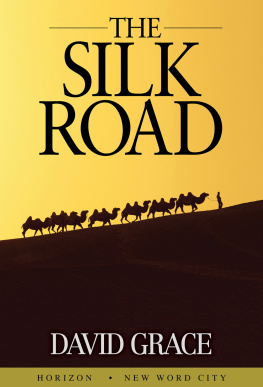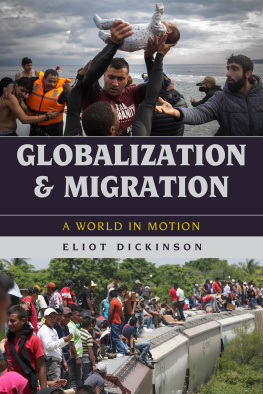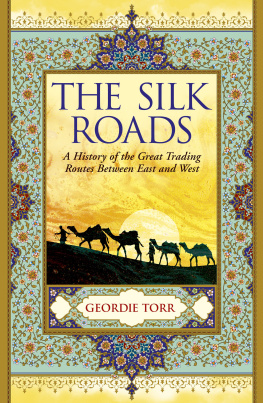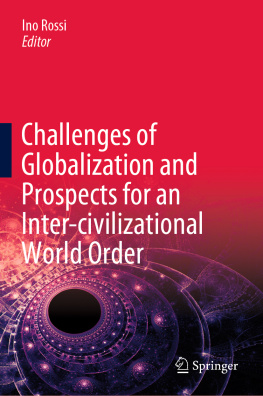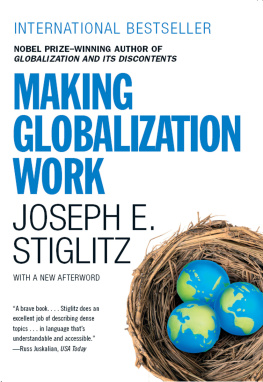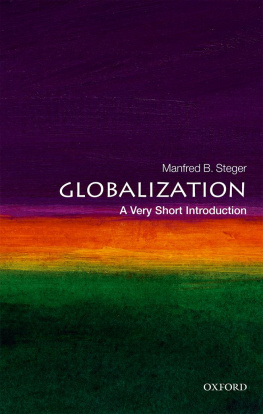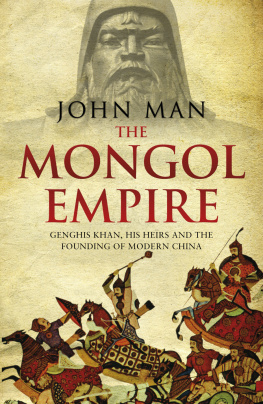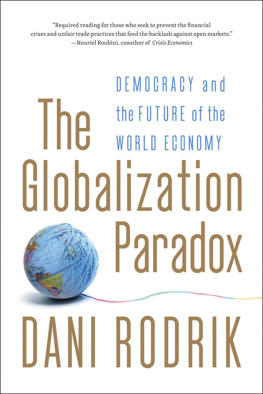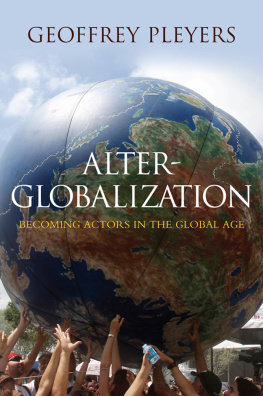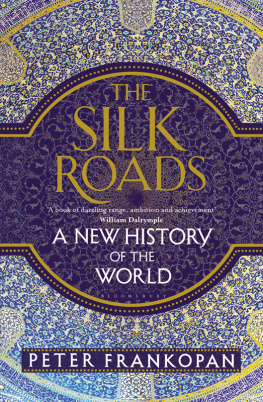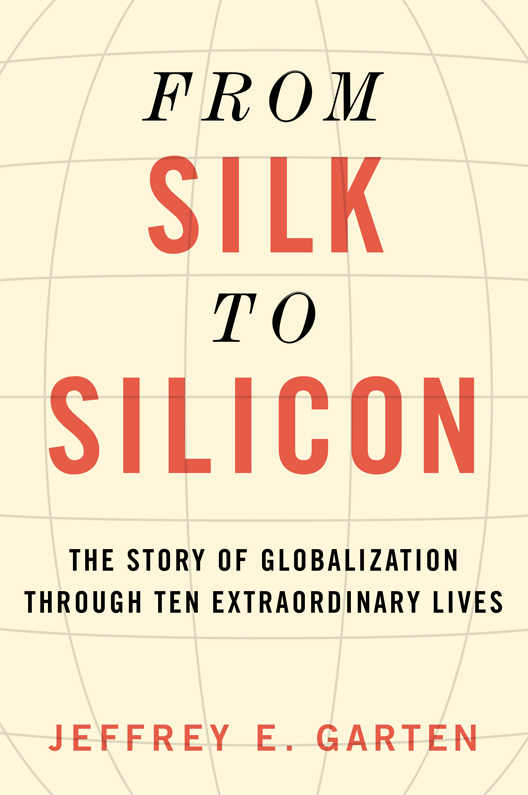From Silk to Silicon was originally conceived in an era of optimism about globalization. It was written as that optimism was eroding, and it came out at a time of full-bore pessimism about the future of global trade, finance, migration, climate, and other such issues. Nevertheless, I believe that the books underlying message is more important than everthat the increasing integration of the global economy, driven by many factors including technologies that we dont even know about yet, is bound to continue. In this book, which covers nearly one thousand years, I focus on the human contribution to globalization, particularly on ten very special people who drove globalization to heights that could never have been envisioned in their lifetimes. They did so amidst circumstances that were every bit as challenging as our era, if not more so. Indeed, the characters in this book can enhance our understanding of how globalization has evolved and how exceptional people can really change the world for the better.
Origins of From Silk to Silicon
When I first began this book, my perspective on globalization was heavily influenced by my professional experience. As an investment banker between the late 1970s and early 90s, I helped countries such as Costa Rica, Indonesia, and Turkey restructure their debts in global markets, and I subsequently oversaw my firms Asian business from Tokyo. As undersecretary of commerce for international trade in the mid-1990s, I worked on negotiations to integrate emerging market nations such as China, India, and Brazil into the global trading system. As dean of the Yale School of Management from 1996 to 2005, I expanded the number of foreign students coming to my school and opened up new opportunities for studying outside the United States.
In all these positions I deepened my understanding of globalization by traveling extensively and writing articles and books reflecting my experiences. I was also taken by the enthusiasm for international trade and investment on the part of government officials and business leaders, as well as young entrepreneurs and students. I saw evidence that governments nearly everywhere were keen to adopt U.S.-type market-oriented policies. It all made me think that the trajectory of globalization would continue to follow a sharply upward incline.
These feelings compelled me to look into the phenomenon of globalization in greater historical depth, and so I began this book project. I wanted to know how the interdependence of nations evolved and how our era compared to others. I was eager to better understand the ups and downs of globalization and the forces behind those patterns. And because of a long-held interest in historical biography, I wanted to tell the story of globalization through people who gave the phenomenon a gigantic boost by virtue of their powerful ideas and their indefatigable roll-up-the-sleeves leadership.
The Pall over Globalization
While I was writing, however, it seemed as if the engines of globalization not only stalled but went into reverse gear.
In 2008, a financial crisis that began in the United States spread to every corner of the globe. In conjunction with several years of the deep recession that ensued, it obliterated trillions of dollars of capital assets and destroyed millions of lives. The world entered a long period of anemic growth and debilitating unemployment.
Moreover, the volume of trade as a percentage of global activity decelerated by more than half from the pattern of previous decades. Global trade negotiations stopped altogether, replaced by regional talksthemselves resting on tenuous political support in the United States and Europe. A significant number of new trade barriers were erected. Projections for foreign investment in factories and other hard assets around the world were being revised downward, with such capital flows among rich countries declining in 2015 by 40 percent compared to a decade before.
Interest rates reached unprecedented lows in North America, Europe, and Asia, signaling investors conviction that global growth would continue to be slow for a long time to come. Global banks reduced their international lending in response to escalating regulation and heightened fear of taking on too much risk, and many international banksincluding Citibank, Goldman Sachs, Deutsche Bank, and the Hong Kong Shanghai Banking Corporationclosed some of their operations outside their home countries, or dramatically cut their professional workforces abroad. Scandals relating to the rigging of international interest rates and the illegal manipulation of the $5-trilliondollar foreign exchange market, together with growing concerns about tax evasion by multinational companies, cast additional doubt on the soundness of the global banking system.
While I was writing this book, the rapid economic growth of emerging market nations, including China, slowed dramatically. Powerhouses like Brazil experienced serious setbacks, and others with once-promising futures, such as Venezuela, headed for total collapse.
The prices of commodities and raw materials plummeted, deflating the many nations that exported them, from Saudi Arabia to Indonesia, and from China to Canada. Oil prices, among the most important determinants of stability in the global economy, dropped by two-thirds.
During this period, the European Union experienced extreme financial tensions over the economic implosion of Greece. The Arab spring spread like wildfire, and, almost as fast, self-destructed into counter rebellion and chaosmaking it all but impossible for the region to link into the global economy except in the most tenuous way. The global refugee situation reached dire dimensions, causing unprecedented stress on the international system of humanitarian assistance. Ebola renewed fears of a global pandemic, and a few years later the Zika virus was causing new global concerns.
In the 20062016 period, China became a major player on the global scene in trade, finance, and military affairs. It has risen so quickly and with such force that it threatened to dramatically change the political, military, and economic global order as we have known it. At a minimum, Beijing rattled confidence in the West that trade was, on balance, beneficial.
Cyber security, barely a concept when I started my research, became a worldwide nightmare. Between 2012 and 2014 alone, the number of cyber attacks on industrial control systems around the world rose fourfold.
Environmental degradation, often pushed further by climate change, was a major feature of the times. Heat waves, coastal flooding, massive storms, sea-level rises all became more pronounced. Although these occurrences couldnt be technically connected to climate change, many experts asserted a direct link existed.
All the while, the voices of middle-class men and women in the West whose livelihoods were affected by imports, offshoring, technological change, and deteriorating economies grew louder. No wonder. Inequality of wealth and income soared in much of the world, while wages stagnated. Reflecting the despair and anger felt by millions about the lack of economic opportunity, and also reflecting disdain for government officials and anyone else in elite circles, nationalism and populism became the political order of the day, elevating leaders throughout the West who challenged the conventional wisdom that a liberal, open global economy was, after all, in the interests of the industrial democracies. This was no small matter since that philosophy had been the foundation of Western progress since the end of World War II, and later had been widely adopted by the rest of the world after the Soviet Union collapsed in 199091. It seemed as if a revolution in thought and action against globalization was gathering force.





